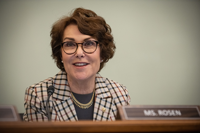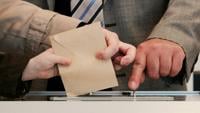(The Center Square) - The Nevada Assembly Committee on Commerce and Labor heard a bill Monday that would allow establishments to deliver mixed drinks to people off site.
Assembly Bill 375 allows an establishment to deliver mixed drinks to a consumer if “the delivery takes place in a jurisdiction” where it is “licensed to sell mixed drinks at retail.”
House Speaker Steve Yeager, D-Las Vegas, and Assemblymember Bert Gurr, R-Elko, are the primary sponsors of this bill.
AB 375 says the mixed drink must be brought sealed to the customer.
This bill defines a “mixed drink” as a “beverage that is a combination of wine or distilled liquor and one or more mixers that is combined on the premises of an establishment and sold in a sealed container for consumption off the premises of the establishment.”
Nevada law says an establishment is a “business that sells alcoholic beverages by the drink for consumption on the premises.”
This bill proposes that the Nevada Department of Taxation make rules governing this transaction, including having the deliverer complete a course and receive a valid alcohol education card. The NDT can also require establishments selling these drinks to perform age verification controls.
AB 375 proposes that all orders be done during an establishment’s operating hours.
The bill proposal also says that a surcharge for these orders can't exceed 50 cents per sale.
According to AB 375, city councils can opt out of having this service in their municipality and add their own regulations.
If an establishment is found guilty of violating regulations regarding mixed drink sales, it can face a civil fine between $500 and $5,000 or have its ability to offer these services suspended or revoked.
At the hearing, Yeager said AB 375 has three main goals: helping Nevada small businesses and restaurants, providing convenience to customers, and creating a new source of revenue for state DUI enforcement and education.
“The most effective deterrent to criminal activity is the chance of getting caught. That’s why the money generated from this bill will go to the DUI prevention and education efforts,” he said.
Yeager added he is trying to reduce the number of “impaired drivers” on Nevada roadways.
Peter Saba, the senior government affairs manager for the Nevada Restaurant Association, called this bill “pro-business, pro-safety and pro-Nevada.”
Saba said AB 375 “modernizes” the state’s liquor laws by letting restaurants sell and deliver alcohol to go “safely.” He added that this bill was not about “cutting corners or weakening oversight” but rather “leveling the playing field.”
According to Saba, this bill will strengthen the state’s economy, respect local control and provide the “strict safeguard” Nevada citizens “expect and deserve.”
The bill would bring an estimated $228 million annually in revenue for restaurants in the state, Saba said.
Based on this revenue, he said, the sales tax would bring in between $15.6 million and $19.1 million annually. Also, the 50-cent surcharge would add $11.4 million yearly for the state's DUI prevention.
Opposing the bill, Misty Grimmer, representing the Nevada Resort Association, said the organization doesn’t have a problem with people ordering mixed drinks while at home. Grimmer said the association’s concern was about these mixed drink deliveries to resorts.
Another opponent, Ashley Kennedy, a Clark County government affairs analyst, said the county opposes the bill as written.
Kennedy said the county’s unincorporated area has a law allowing liquor deliveries from grocery stores.
The county is also working on a law that would let liquor stores and third-party apps deliver alcohol, she said.
In amending AB 375, Yeager said there is still a lot of work to do on the bill.








